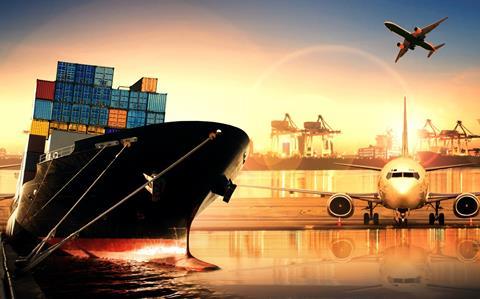
The International Maritime Organization’s (IMO) regulations regarding ocean-going vessels’ sulphur emissions comes into effect from January next year. Under the ruling, vessels will no longer be allowed to use bunker fuel that has a high sulphur content. Emissions must be reduced from the current 3.5% global limit to 0.5%.
The new rule, known as ‘Sulphur 2020’, will demand that cargo vessels use compliant low-sulphur fuel or else an approved abatement technology such as a scrubber – essentially a filter to remove particles from engine exhaust – or an alternative fuel like hydrogen.
Emergency logistics supplier Evolution Time Critical has warned the automotive sector that it needs to be ready regarding supply chain reliability in the face of the new rules.
“While there may be some impact on transport costs, more important is the potential impact on arrival dates in port,” said Graham Little, managing director of Evolution Time Critical. This is crucial to the integrity of the automotive supply chain, where just-in-time (JIT) delivery is so often the norm; so anything which could cause a delay has to be mitigated against.”
Little explained that carriers have various options to comply with the new regulations. Their first option is to buy ‘greener’ fuels – a cost which will end up being passed on to shippers. However, Sulphur 2020 also states that from March 1 next year ships that continue to run on heavy oil must be fitted with exhaust gas cleaning systems, also known as ‘scrubbers’. Installation of those systems will make the ships being fitted unavailable affecting fleet capacity and carriers could start taking some of their ships out of service over the next few months.
Finally, to conserve fuel, vessel operators could slow down the speed at which they travel, a practice known as slow steaming.
Little said this last point was particularly important for automotive consignments, as not only would it impact on capacity, with fewer journeys able to be made within the same time, but delays to arrival in port could result where slow steaming is employed.
He continued: “The introduction of IMO 2020 will inevitably create challenges, especially in the early stages, and places an onus on OEMs and their tier suppliers to retain a strong overview of their supply chains for standard logistics. They will need to ensure that capacity is going to be available when they need it, avoiding the risk of rolling over of consignments – and to be clear when ships are going to arrive in port, so that delivery schedules can be adhered to. What this exercise will likely reveal is that there may be gaps in provision which they will need to address.”
There may well be a grace period of ‘permitted noncompliance’ as carriers get their house in order, but carmakers and suppliers should be planning now to counter any risks, according to Little.

























![Global[1]](https://d3n5uof8vony13.cloudfront.net/Pictures/web/a/d/s/global1_726550.svgz)













No comments yet